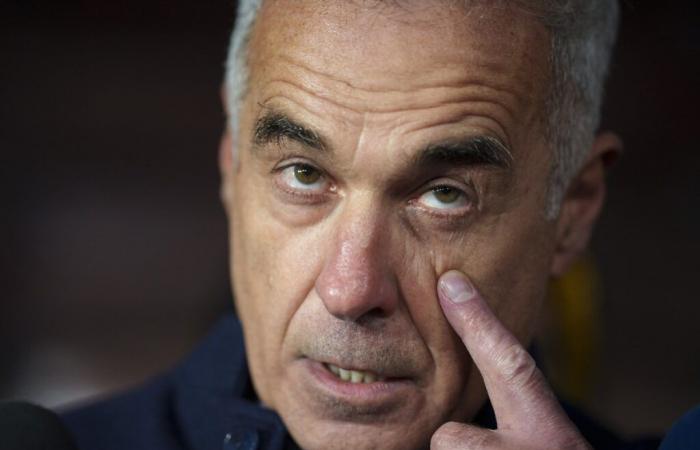Keystone-SDA
Romania begins counting the ballots for the presidential election on Friday. This against a backdrop of fears of cancellation of the vote, with the authorities pointing to Russian influence and the role of the TikTok platform.
This content was published on
November 29, 2024 – 2.07pm
(Keystone-ATS) In the midst of the turmoil, the parties are preparing for Sunday’s legislative elections, with the far right determined to confirm its breakthrough. Under the worried eye of the West which fears a strategic reorientation in this neighboring state of Ukraine, a loyal member of the EU and NATO.
Across the country, large bags were brought to polling stations for a recount process that could last three days, behind closed doors.
Recount criticized
This decision of the Constitutional Court, seized of a request for annulment by an unsuccessful candidate, arouses numerous criticisms.
The center-right USR party, whose leader Elena Lasconi came a narrow second, filed an appeal, while the liberals criticized a “confusing” judgment which only fuels concerns and tensions.
Doubts about the transparency of the process also emerged, while access to independent observers was denied.
TikTok’s “Preferential Treatment”
On the networks and in the streets, Romania is in turmoil. “A large part of society is shocked, another is euphoric,” summarizes political scientist Remus Stefureac for AFP.
On the one hand, the far-right candidate Calin Georgescu, who unexpectedly came first in the first round, defends the legitimacy of the Romanians’ vote. On the other hand, there are accusations from the authorities.
According to the Supreme Council of National Defense, this former senior official benefited from “preferential treatment” from TikTok, which the social network “categorically” denied.
“Cyber attacks” aimed at “influencing the regularity of the electoral process” were also mentioned, noting “a growing interest” on the part of Russia “in the current context of regional security”.
Prime Minister Marcel Ciolacu, eliminated from the race, raised the specter of a “stolen election”, while ensuring that he would not run again in the event of a new vote.
The far right expected in force
It is in this explosive context that Romanians return to the polls on Sunday, a national holiday, this time to elect Parliament.
After three decades of political life structured by two major parties, analysts predict a fragmented hemicycle and difficult negotiations to form a government.
The far right is credited with more than 30% of voting intentions, according to polls. Unheard of in this country until now, away from the nationalist surges observed in the rest of the region but agitated by the anger and frustrations of the population, in the face of record inflation and a political class considered incompetent and arrogant.
Several parties from this political side are present: the AUR party (Alliance for the Unity of Romanians), whose candidate George Simion received nearly 14% in the presidential election, is in the running, but also SOS Romania, led by the tempestuous pro-Kremlin candidate Diana Sosoaca.
A new party, POT (Youth Party), appeared after the Georgescu surprise, which he supports, and could cross the 5% threshold necessary to enter Parliament.
Grand of the Donald Trump
“We are here, standing, alive, more numerous than ever and with a tremendous opportunity before us,” Mr. Simion, a big fan of Donald Trump, told his supporters, dreaming of a victory for the extreme right at the same time. in the presidency and in Parliament.
In the opposing pro-European camp, the USR party – which hopes to do well – evokes “an existential battle”. “A confrontation” between those who want to “preserve the young Romanian democracy” born from the 1989 revolution and those who want to “return to the Russian sphere of influence”.
Laminated, the social democrats and the liberals, currently in power in a coalition, are putting forward their “experience” to try to limit the damage.
“All the cards are reshuffled,” concludes political scientist Remus Stefureac, imagining the possibility of a government of national unity in the face of security risks with the war on Romania’s doorstep.






